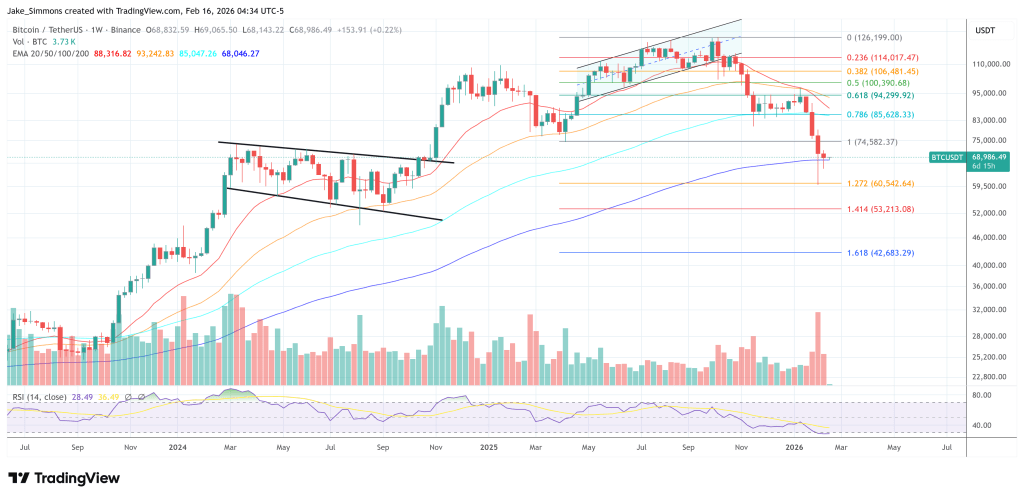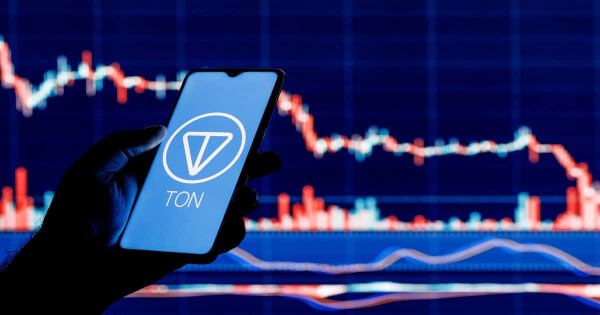The field of decentralized finance, or DeFi, has been a hotspot of innovation and opportunity, promising users decentralized, trustless financial services. However, recent legal actions by the Commodity Futures Trading Commission (CFTC) in the United States have prompted worries within the DeFi community.
The major question is whether the CFTC's regulatory push will eventually render DeFi unlawful in the United States. We will look at the current state of DeFi regulation, the CFTC's recent moves, and the potential consequences for the future of decentralized finance in the United States.
The DeFi Environment
Within the bitcoin and blockchain ecosystem, decentralized finance is a rapidly expanding area. DeFi systems seek to replicate traditional financial services like lending, borrowing, trading, and asset management on blockchain networks without the use of intermediaries like banks or brokers. Smart contracts are used by users, and assets are frequently locked in decentralized protocols, enabling for permissionless and borderless financial transactions.
In recent years, this embryonic industry has seen tremendous growth, with billions of assets locked in DeFi protocols, drawing both retail and institutional investors seeking higher returns, greater transparency, and financial inclusion.
Uncertainty in DeFi Regulation
The decentralized structure of the DeFi ecosystem has presented authorities around the world with issues. Unlike centralized financial institutions, DeFi platforms often lack a physical presence or a legal organization to which they can be held accountable. Because of this lack of centralization, regulatory uncertainties have arisen, making it difficult for authorities to enforce traditional financial regulations within the DeFi arena.
The lack of intermediaries and DeFi's decentralized nature have been key to its attractiveness, but they have also prompted worries about investor protection, money laundering, and market manipulation. Regulators throughout the world have been debating how to find a balance between encouraging innovation and ensuring financial stability.
Recent CFTC Actions
The Commodity Futures Trading Commission (CFTC), which regulates commodity markets and derivatives trading in the United States, has recently taken moves to establish its jurisdiction over key areas of the DeFi ecosystem. The CFTC produced a "crypto primer" in March 2021 explaining its jurisdiction over digital assets, including as cryptocurrencies and tokens. The primer noted that certain DeFi operations involving digital assets may be regulated by the CFTC.
Furthermore, in October 2020, the CFTC launched a civil enforcement action against BitMEX, a cryptocurrency derivatives exchange, and its owners, citing anti-money laundering (AML) and know-your-customer (KYC) violations. Although BitMEX is not a DeFi platform, the CFTC's action demonstrated the agency's determination to take legal action against firms participating in digital asset trading.
CFTC Issues Orders Against Operators of Three DeFi Protocols for Offering Illegal Digital Asset Derivatives Trading
The CTFC has taken action against Opyn, Inc., ZeroEx, Inc., and Deridex, Inc., for their involvement in illegal digital asset derivatives trading within the DeFi space. Opyn developed a blockchain-based protocol for trading oSQTH tokens, while Deridex offered perpetual contracts, and ZeroEx provided a platform for leveraged token trading.
The CFTC alleges that these activities violated regulatory requirements. Opyn and Deridex failed to register as swap execution facilities (SEFs) and futures commission merchants (FCMs). They also lacked essential customer identification programs. ZeroEx offered leveraged tokens, which were considered retail commodity transactions and should have been offered on a registered exchange.
Director of Enforcement Ian McGinley emphasized that DeFi operators cannot evade legal requirements merely through the use of smart contracts. The CFTC remains committed to regulating unregistered platforms that allow U.S. individuals to trade digital asset derivatives.
This enforcement action underscores the CFTC's evolving regulatory approach in the DeFi sector, balancing market integrity with the emergence of novel financial technologies.
Jurisdiction and DeFi of the CFTC
The CFTC's jurisdiction over DeFi platforms and operations is the main issue at hand. While the CFTC primarily regulates derivatives markets, its regulatory authority also extends to commodities markets. The issue occurs when DeFi protocols involve assets or activities classified as commodities or derivatives by the CFTC.
The CFTC claimed in its crypto introduction that Bitcoin and Ethereum are commodities. This categorization may allow the CFTC to establish regulatory jurisdiction over DeFi initiatives built on these blockchain networks, especially if they contain derivatives trading, futures contracts, or other commodity-linked financial products.
Implications for DeFi in the United States
Concerns have been raised regarding the CFTC's regulatory effort in the DeFi field, including the possible stifling of innovation and the prospect of making DeFi illegal in the United States. While regulatory scrutiny is necessary for investor safety and market integrity, overly stringent restrictions can drive innovation abroad, restricting the local DeFi sector's growth.
One possibility is that DeFi developers and projects will prefer to operate outside of the United States in order to escape the regulatory difficulties and uncertainties associated with the CFTC's jurisdiction. This might lead to a loss of expertise, creativity, and economic prospects for the blockchain and cryptocurrency industries in the United States.
Navigating the Regulatory Environment
DeFi projects and stakeholders must interact with regulatory authorities proactively in order to negotiate the shifting regulatory landscape. Collaboration and open conversation can assist regulators in better understanding the complexities of decentralized finance and developing regulatory frameworks that strike the correct balance between innovation and investor protection.
To improve security and transparency, some DeFi initiatives are already investigating regulatory compliance methods such as instituting AML and KYC procedures or performing audits of their smart contracts. These activities demonstrate the DeFi community's desire to collaborate constructively with regulators.
Potential Advantages of DeFi
It is critical to acknowledge that decentralized finance has the potential to significantly enhance the financial ecosystem as a whole. DeFi can boost financial inclusion, cut costs, and improve transparency in financial markets by eliminating middlemen and facilitating peer-to-peer transactions. These benefits are consistent with wider financial inclusion and innovation objectives.
When developing DeFi regulatory frameworks, regulators must take into account these possible benefits. Finding the correct balance between oversight and innovation is a difficult but critical endeavor.
The Next Steps
As the DeFi ecosystem evolves, it is evident that regulatory monitoring is required to safeguard investors and preserve market integrity. However, regulators must avoid limiting innovation and pushing DeFi activities abroad.
In contrast, the DeFi community should actively engage with regulators and collaborate to build acceptable regulatory frameworks. This proactive approach can assist in ensuring that DeFi can survive with existing financial systems while adhering to its key ideals of decentralization and accessibility.
Finally, the future of decentralized finance in the United States will be determined by regulators' and the DeFi community's ability to establish common ground and strike a balance that encourages innovation while protecting the interests of all stakeholders. Achieving this delicate balance will be critical in determining if DeFi continues to be a viable and lawful financial business in the United States.
This article was written by Pedro Ferreira at www.financemagnates.com.
You can get bonuses upto $100 FREE BONUS when you:
💰 Install these recommended apps:
💲 SocialGood - 100% Crypto Back on Everyday Shopping
💲 xPortal - The DeFi For The Next Billion
💲 CryptoTab Browser - Lightweight, fast, and ready to mine!
💰 Register on these recommended exchanges:
🟡 Binance🟡 Bitfinex🟡 Bitmart🟡 Bittrex🟡 Bitget
🟡 CoinEx🟡 Crypto.com🟡 Gate.io🟡 Huobi🟡 Kucoin.














Comments